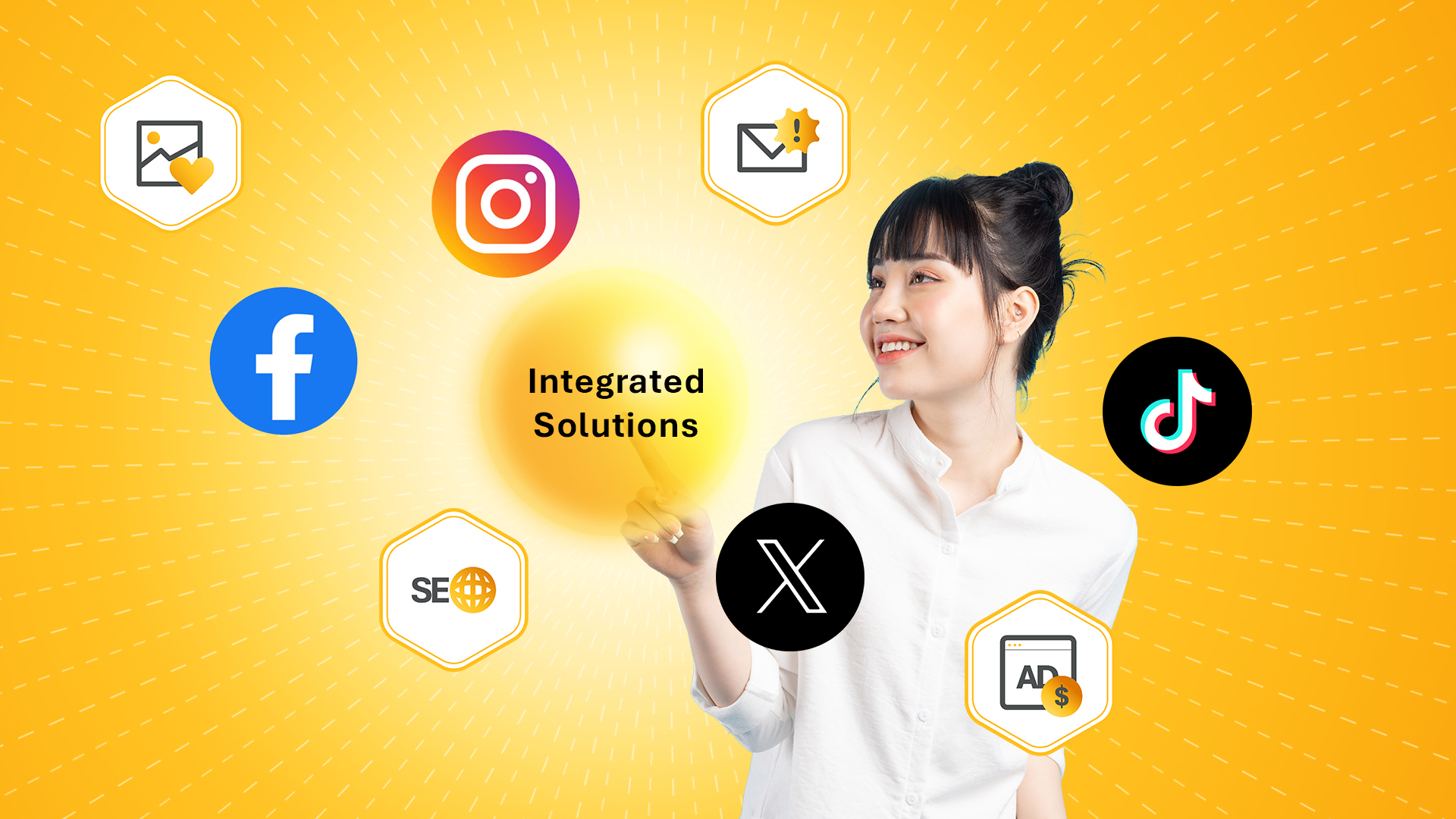In a shift reshaping digital marketing, the industry is moving beyond traditional integrated marketing toward platform convergence in digital marketing. This strategy unifies various marketing channels and technologies into a seamless whole, enhancing customer experience and operational efficiency. Artificial intelligence (AI) and large language models (LLMs) are accelerating this transformation, but human-centric engagement remains crucial for building trust and loyalty. The most effective strategies combine AI’s efficiency with human empathy, embodying the essence of platform convergence in digital marketing and its broader vision of convergence marketing.
The Evolution from Siloed Marketing to Convergence
Historically, marketing operated in silos—separate teams handling social media, email, websites, and advertising independently. This fragmented approach led to inconsistent messaging and disjointed customer experiences. Integrated marketing, which gained traction in the late 20th century, aimed to align brand messaging across channels but often fell short of true unification. A Forbes report revealed that 65% of marketers believe silos diminish campaign clarity, leading to inefficiencies and confusion.
Platform convergence takes integration a step further by merging digital technologies—smartphones, social media, websites—into a cohesive ecosystem. This strategy ensures consistent branding and seamless customer experiences across touchpoints. Unlike traditional marketing, convergence marketing leverages AI to enhance personalization and unification, delivering tailored experiences at scale.
Benefits of Platform Convergence
Businesses adopting platform convergence experience multiple advantages:
| Benefit | Description |
| Enhanced Customer Experience | A seamless journey across digital and physical touchpoints improves satisfaction and engagement. |
| Stronger Brand Consistency | A unified brand message across all platforms reinforces identity and recognition. |
| Increased Efficiency and ROI | Streamlining efforts reduce redundancies and optimize resource allocation. |
| Deeper Data Insights | Integrated data from various channels provides a comprehensive view of customer behavior. |
| Improved Customer Loyalty | Personalized and consistent interactions foster long-term relationships. |
| Cross-Departmental Collaboration | Breaking down silos enhances coordination between marketing, sales, and IT teams. |
A study found that 83% of customers prefer brands that provide consistent experiences across departments, highlighting the importance of convergence.
Real-World Examples of Platform Convergence
Leading brands demonstrate the power of platform convergence:
- Nike’s Air Max Day Campaign combined Instagram, TikTok, influencer collaborations, personalized emails, and in-store events for an immersive experience.
- Sephora uses AI-driven analytics to personalize online and in-store interactions, bridging digital browsing with physical purchases.
- Apple’s “Shot on iPhone” Campaign leveraged user-generated content across social media, billboards, and online platforms, showcasing real-world applications of its product.
- CeraVe’s Super Bowl Ad integrated TV, social media, influencer marketing, and online content, driving massive engagement and sales.
- Dell uses multi-channel marketing, from digital jingles to social media and email campaigns, ensuring a comprehensive brand presence.
AI’s Role in Platform Convergence
AI is a key enabler of platform convergence, driving:
- Automated Content Creation: LLMs streamline content generation while maintaining brand voice.
- Personalized Customer Journeys: AI analyzes user behavior to tailor experiences dynamically.
- Predictive Analytics: Machine learning anticipates customer needs, optimizing targeting and messaging.
- Chatbots & AI Assistants: Automated responses improve customer support and engagement.
- Ad Targeting Optimization: AI enhances campaign precision by analyzing vast datasets.
Despite AI’s efficiency, human involvement remains essential. Emotional intelligence and creativity—core to marketing success—cannot be fully replicated by AI. The best strategies balance automation with genuine human connection.
Key Technologies Driving Convergence
Several technologies facilitate platform convergence:
| Technology | Description | Key Benefit |
| CRM Systems | Centralizes customer data for personalized interactions. | Provides a unified view of the customer. |
| Marketing Automation Platforms | Streamlines campaign execution across channels. | Ensures consistent messaging and engagement. |
| Data Analytics Tools | Provides insights into customer behavior and campaign performance. | Enables data-driven optimization. |
| CMS | Manages and publishes digital content across platforms. | Ensures consistent brand messaging. |
| Social Media Management Tools | Schedules and monitors social media activity. | Maintains brand presence and engagement. |
| AI-Powered Tools | Automates tasks like content creation and analysis. | Enhances personalization and efficiency. |
For instance, CRM data can inform automated marketing campaigns, while analytics track performance, creating a seamless flow of information and strategy execution.
Challenges in Implementing Platform Convergence
While convergence marketing offers substantial benefits, implementation poses challenges:
- Data Silos: Fragmented data across platforms hinders a unified view of the customer.
- Technology Integration Issues: Ensuring compatibility between systems can be complex.
- Maintaining Brand Consistency: Requires meticulous planning to uphold a unified message.
- Cross-Departmental Collaboration: Organizational silos can slow adoption.
- Data Privacy Concerns: Businesses must comply with regulations and ethical guidelines.
To overcome these obstacles, companies should foster collaboration, invest in integrated platforms, and establish strong data governance policies.
The Future of Platform Convergence
The digital marketing landscape will continue evolving with AI advancements and new technologies. Key trends include:
- Greater AI Sophistication: Enhancing automation, targeting, and personalization.
- Blurring Online & Offline Experiences: Integrating digital strategies with in-person interactions.
- Increased Focus on Data Privacy & Ethics: Addressing consumer concerns around AI-driven marketing.
- Emerging Technologies like Web3 & Metaverse: Opening new avenues for brand engagement.
Businesses must remain agile, investing in adaptable infrastructures and continuous learning to stay ahead.
Conclusion
Platform convergence is the future of digital marketing, offering a unified approach that enhances customer experience, brand recognition, and marketing efficiency. The integration of AI-driven insights with human creativity enables businesses to build stronger connections and drive better results. While implementation challenges exist, a strategic approach to technology adoption and collaboration can help organizations successfully navigate this transformation.
To future-proof digital marketing efforts, businesses should partner with experts who can guide them through the convergence journey. By embracing this evolution, brands can achieve sustained growth and customer loyalty in an increasingly interconnected world.
Ready to harness the power of cutting-edge technology and take your business to the next level? Partner with ClinkIT Solutions today! From AI-driven solutions to cloud optimization and custom software development, we specialize in delivering innovative strategies tailored to your unique needs.
Contact us now to start your journey with ClinkIT Solutions!



